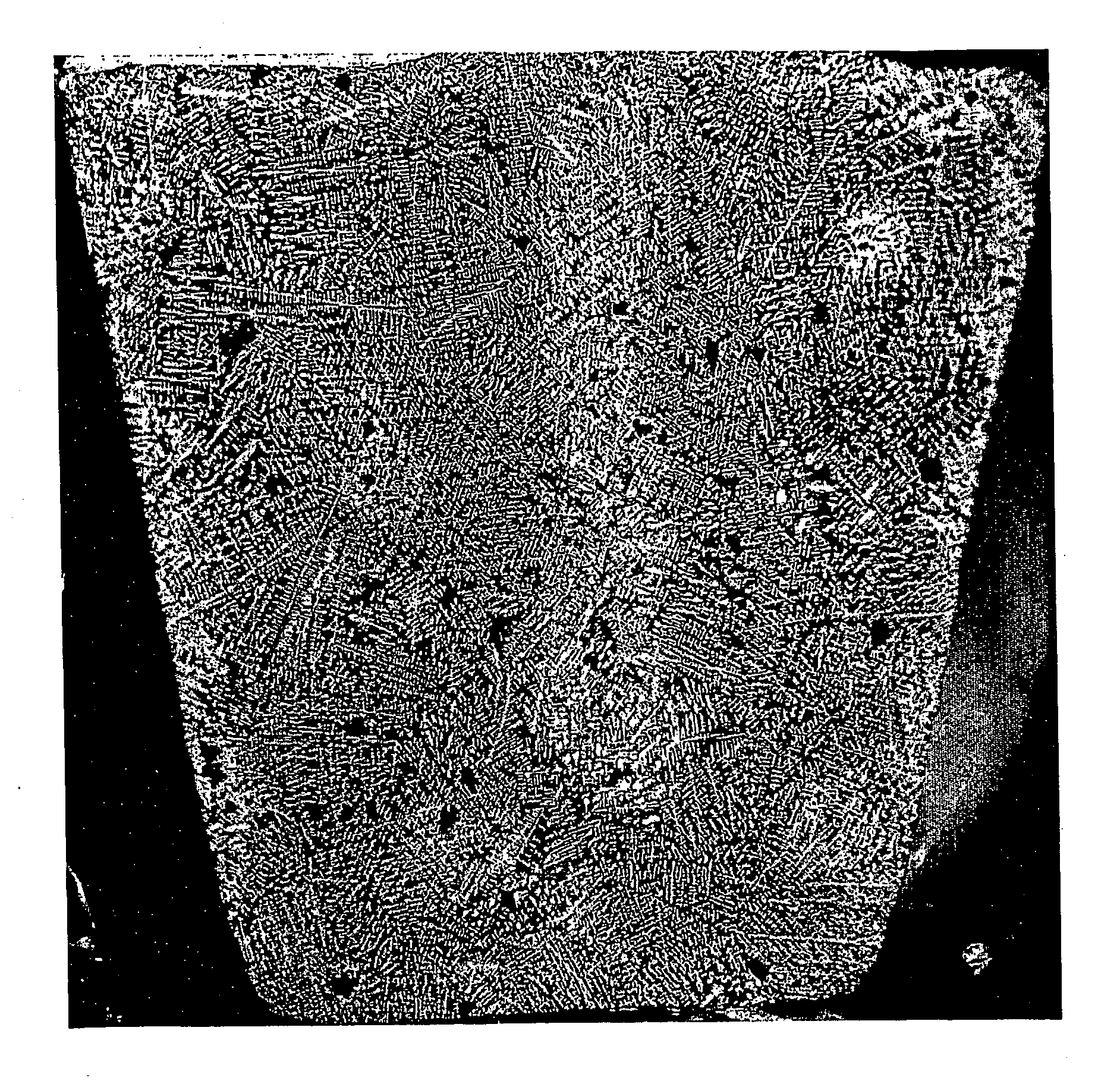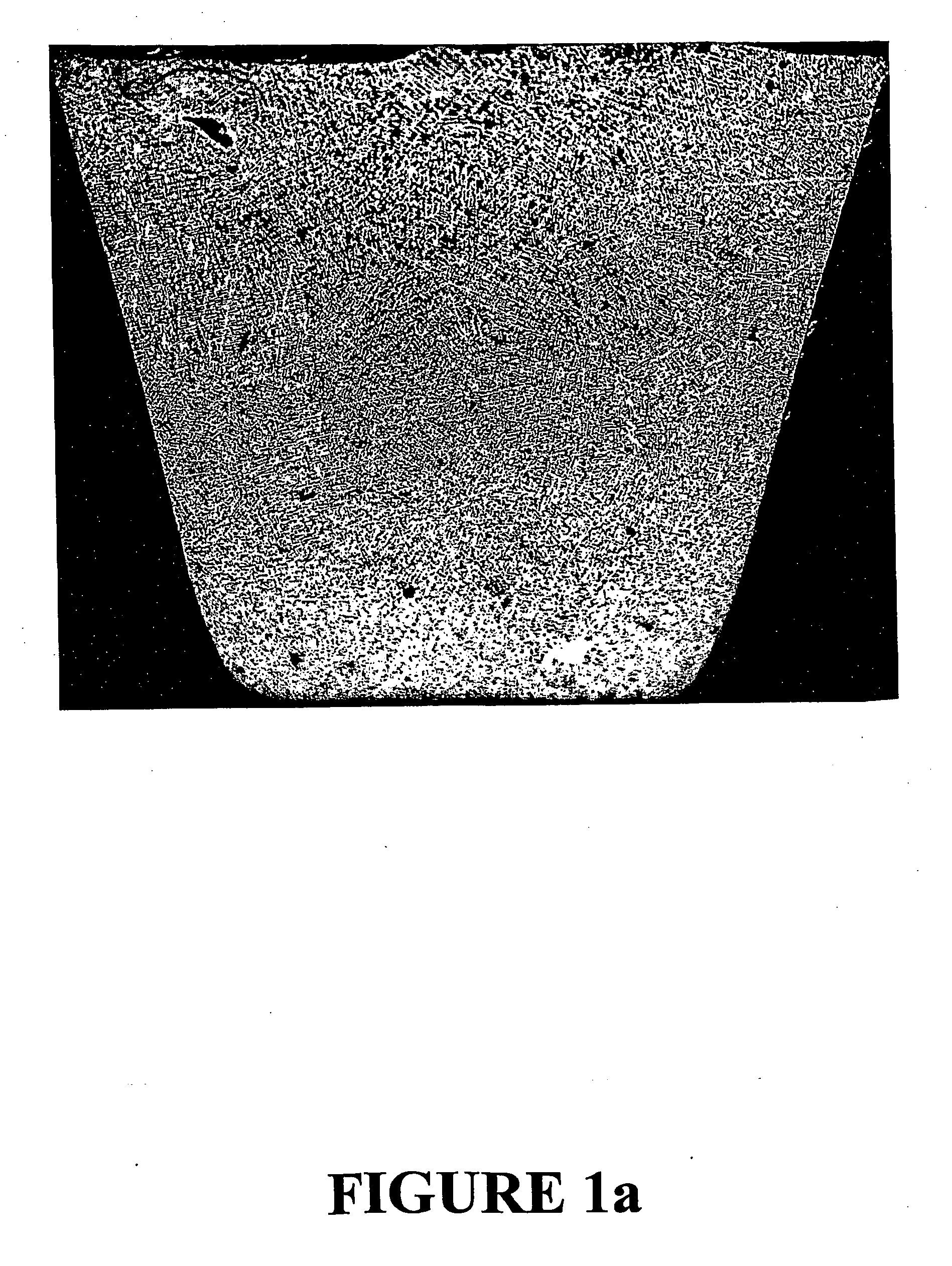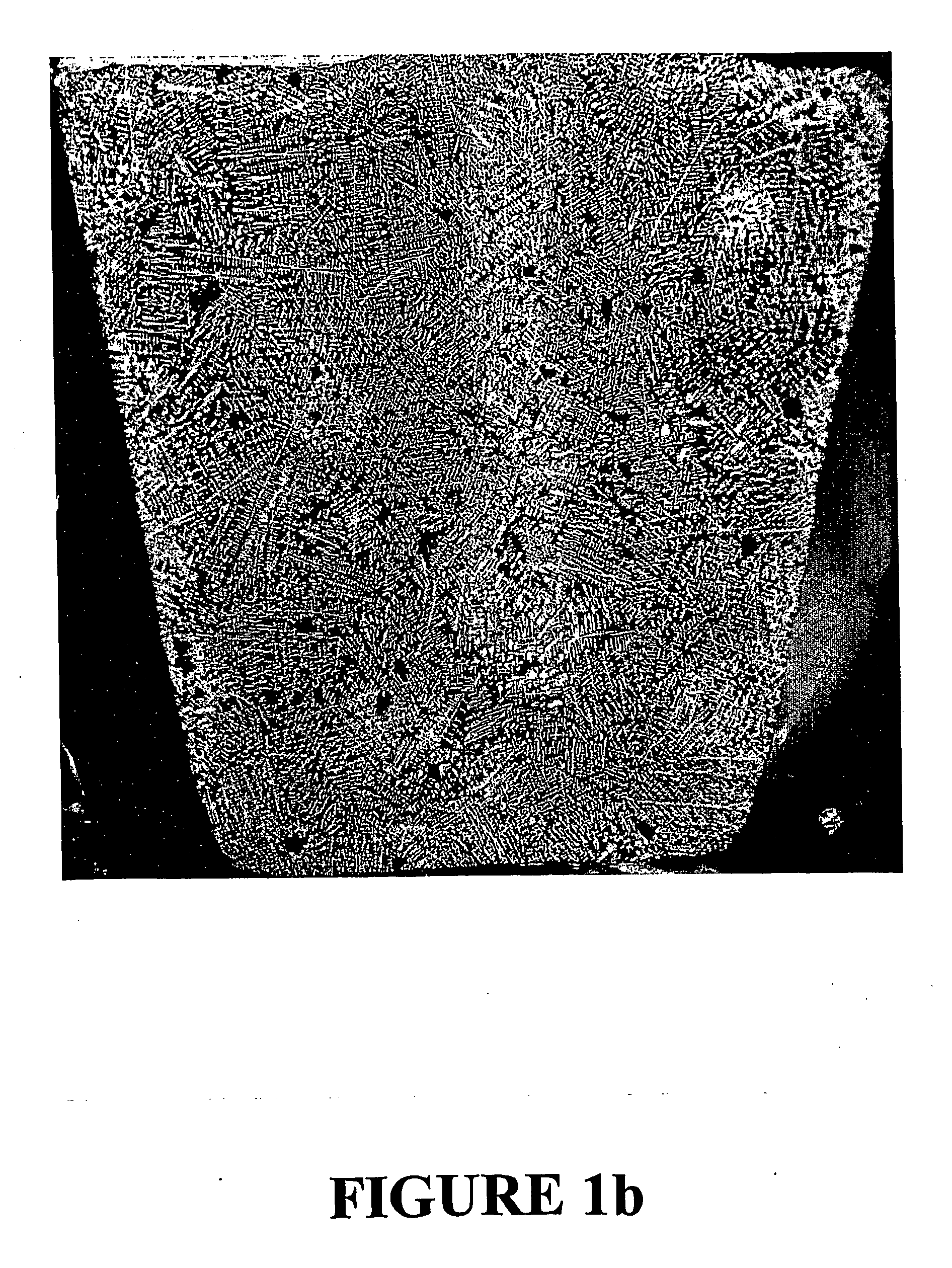Aluminium casting alloy
a technology of casting alloy and aluminum, applied in the field of aluminum casting alloy, can solve the problems of pore redistribution, increase in casting porosity, and significant increase of the undercooling of eutectic nucleation and depression of eutectic growth temperature, and achieve the effect of promoting a small eutectic grain siz
- Summary
- Abstract
- Description
- Claims
- Application Information
AI Technical Summary
Benefits of technology
Problems solved by technology
Method used
Image
Examples
example 1
[0038]A number of tests have been conducted with different addition levels of three trial alloys separately containing the nucleant particles TiSix, CrBx and MnCx. Among these master alloys, the alloy with CrBx particles appears effective in nucleating the eutectic Si. Three repetitive tests have been conducted for this master alloy alone. It appears this master alloy is effective only at an addition level exceeding 2 wt % (or according to calculation, there is about 2.5 wt % CrBx in the master alloy. Therefore it is expected to have 0.5 g CrBx in 1000 g melt at this addition level). This is likely because the number of potent nuclei is not very high in the master alloy itself. Nevertheless this demonstrates the potency of the CrBx particles present in this particular trial master alloy. These particles measured using laser diffraction technique had a volume weighted mean diameter of 5 μm. While the general trend was found in all three tests (ie. volume weighted mean diameter of 5 μ...
example 2
[0041]Phosphorous is a common trace impurity element in commercial aluminium. It originates from impurities in the alumina so that the potline Al contains somewhere around 5-20 ppm P. Phosphorous can also arise from the refractory furnace lining in melting and holding furnaces. It is well established that AlP is a good nucleus for silicon, and this is used commercially to grain refine primary silicon crystals in hypereutectic Al—Si alloys which contain silicon contents above about 12 wt %, and 18 wt % is common. In hypoeutectic alloys, it is suggested that the modifiers (such as Sr) neutralise the AlP particles, thereby reducing the eutectic nucleation frequency, although the effect has not received significant attention. It is therefore of interest to investigate whether it is possible to tailor specific combinations of P and Sr to achieve a high nucleation frequency together with a refined and fibrous Si morphology.
[0042]A phosphorus containing master alloy Al CuP having 19 wt % C...
example 3
[0047]From the work with additions of Ti-bearing master alloys into Sr-modified melts, it is understood that aluminium boride may be a potent nucleus for the eutectic colonies. Therefore experiments have been conducted with addition of Al-3% B master alloy into Sr-modified melts. One repetitive run was conducted and the results appear very promising. The Ti and B containing master alloys used as the Al B producing nucleating agent were commercially available alloys Tibor and Tibloy having the composition set out in Table 3.
Tibor%Tibloy%Ti4.5-5.5Ti1.5-1.7B0.9-1.1B1.3-1.5Fe0.3 maxFe0.3 maxSi0.3 maxSi0.3 maxV0.2 maxV0.2 maxOthersNot specifiedOthers each 0.04Total 0.10
[0048]The impurity level of Ti in the liquid alloys did not affect the effectiveness of the nucleating particles for this invention. For some of tests where Tibloy was used, the Ti concentration in the melt can reach up to about 1000 ppm.
[0049]FIGS. 6(a)-(d) and 7(a)-(d) show the macrographs of samples quenched halfway thr...
PUM
| Property | Measurement | Unit |
|---|---|---|
| particle size | aaaaa | aaaaa |
| particle size | aaaaa | aaaaa |
| volume weighted mean diameter | aaaaa | aaaaa |
Abstract
Description
Claims
Application Information
 Login to View More
Login to View More - R&D
- Intellectual Property
- Life Sciences
- Materials
- Tech Scout
- Unparalleled Data Quality
- Higher Quality Content
- 60% Fewer Hallucinations
Browse by: Latest US Patents, China's latest patents, Technical Efficacy Thesaurus, Application Domain, Technology Topic, Popular Technical Reports.
© 2025 PatSnap. All rights reserved.Legal|Privacy policy|Modern Slavery Act Transparency Statement|Sitemap|About US| Contact US: help@patsnap.com



